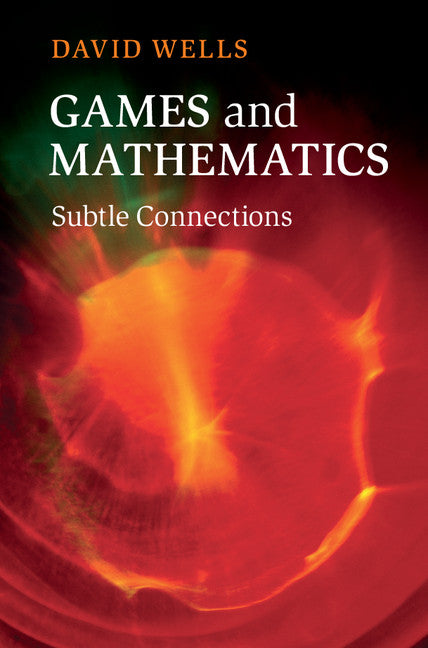Freshly Printed - allow 8 days lead
Couldn't load pickup availability
Games and Mathematics
Subtle Connections
A unique book providing a tour through the fascinating connections between mathematics and games.
David Wells (Author)
9781107024601, Cambridge University Press
Hardback, published 18 October 2012
258 pages, 160 b/w illus.
23.5 x 15.8 x 1.9 cm, 0.53 kg
'Complete with a consistent argument and a wealth of supportive references, this is a fun work for both game players and mathematicians to explore. Highly recommended.' J. Johnson, Choice
The appeal of games and puzzles is timeless and universal. In this unique book, David Wells explores the fascinating connections between games and mathematics, proving that mathematics is not just about tedious calculation but imagination, insight and intuition. The first part of the book introduces games, puzzles and mathematical recreations, including knight tours on a chessboard. The second part explains how thinking about playing games can mirror the thinking of a mathematician, using scientific investigation, tactics and strategy, and sharp observation. Finally the author considers game-like features found in a wide range of human behaviours, illuminating the role of mathematics and helping to explain why it exists at all. This thought-provoking book is perfect for anyone with a thirst for mathematics and its hidden beauty; a good high school grounding in mathematics is all the background that is required, and the puzzles and games will suit pupils from 14 years.
Introduction
Part I. Mathematical recreations and abstract games: 1. Recreations from Euler to Lucas
2. Four abstract games
3. Mathematics and games: mysterious connections
4. Why chess is not mathematics
5. Proving versus checking
Part II. Mathematics: game-like, scientific and perceptual: 6. Game-like mathematics
7. Euclid and the rules of his geometrical game
8. New concepts and new objects
9. Convergent and divergent series
10. Mathematics becomes game-like
11. Maths as science
12. Numbers and sequences
13. Computers and mathematics
14. Mathematics and the sciences
15. Minimum paths from Heron to Feynmann
16. The foundations: perception, imagination and insight
17. Structure
18. Hidden structure, common structure
19. Mathematics and beauty
20. Origins: formality in the everyday world
Bibliography
Index.


